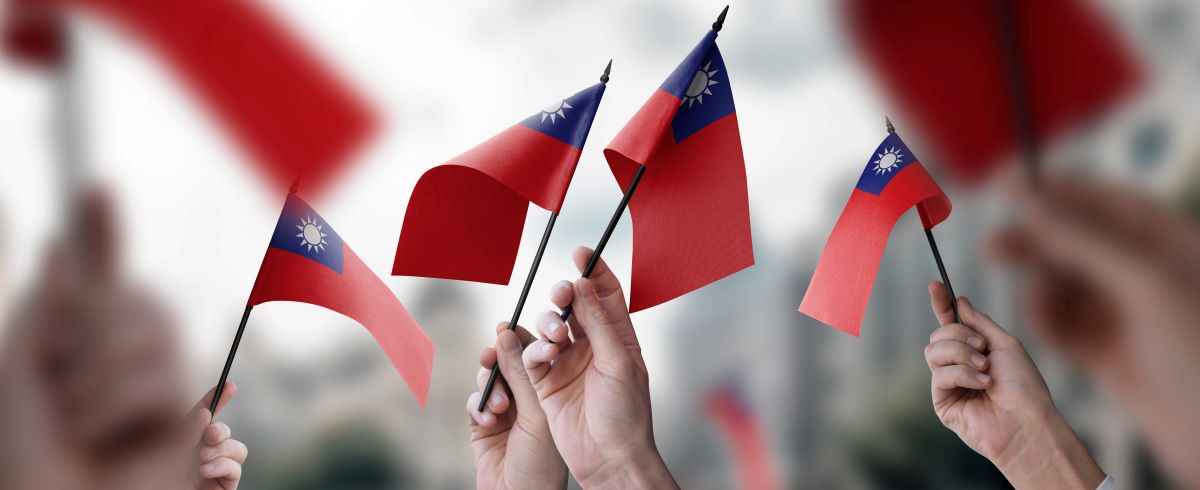The elections in Taiwan have turned out as expected. Lai Ching-te, also known as William Lai, of the pro-independence Democratic Progressive Party (DPP) is the new President-elect. This is however a historic third term for the DPP, as no other party has achieved this since Taiwan became a democracy in 1996. Yet, the DPP lost its parliamentary majority, casting a shadow on Lai’s spending plans, and his strong stance on Taiwan’s independence.
The elections are pivotal and were closely watched since they could affect the stability in the region, US-China relations and the global chip supply chain.
China’s Taiwan Affairs Office spokesman Chen Binhua in a media briefing said that “Cross-Strait relations have taken a turn for the worse in the past eight years, from peaceful development to tense confrontation” and added that the path of Taiwan independence and confrontation is harmful to Taiwan.
William Lai has a strong stance on the matter. In a 2017 remark, he called himself a “worker for Taiwanese independence”, an approach that China insists is “dangerous and will only push the island towards war and recession”.
Taiwan’s economy remains intertwined with China
While the political tensions grew over the past years, it cannot be neglected that Taiwan and China are economically interdependent. For years, the world’s second-largest economy has been Taiwan’s top investment destination and the largest trading partner.
Between 1991 and 2022, Taiwanese companies invested a total of $203 bn in China and were instrumental in massive job creation in the mainland.
According to Taiwan’s Ministry of Economic Affairs, in 2023, China accounted for 35% of Taiwan’s exports, wherein integrated circuits, solar cells and electronic components were the major goods. At the same time, China contributed 20% of the total imports in Taiwan for the same year, resulting in a $80.5 bn trade surplus with China last year.
The chips manufactured by Taiwanese semiconductor companies are integral for the Chinese economy given its plans to establish global dominance in AI and electric vehicles (EVs). Similarly, China is a crucial link in Taiwan’s international trade. Taiwan exports raw materials to China which takes over the assembling and export of the finished goods worldwide.
Lai vows to boost the semiconductor sector
Recognising the importance of Taiwan’s semiconductor industry as “the world’s common asset”, President-elect Lai promised to give the sector a boost.
“As president, I will continue to assist the development of the semiconductor industry, from materials, equipment, research and development, integrated circuit design, and manufacturing to wafer fabrication and testing for the industry to build a comprehensive cluster and further its development in Taiwan. This will of course benefit the global economy as well,” asserted Lai.
However, investors are still concerned about the long-term impact of the volatile relationship across the Taiwan Strait.
Any economic pressure from China could backfire
Investors have been anxious about an extremely hostile reaction from China leading to a chain of sanctions impacting the global semiconductor industry and beyond. Taiwan Stock Exchange Data revealed that foreign investors, including ones from mainland China, offloaded Taiwanese equities worth $878.56 mn in the first eight trading days of 2024.
However, analysts believe that China may not take any drastic action in the form of military or economic pressure in the next months. Lai’s inauguration on May 20, will be a key date in determining the actual impact of the election on the volatile relationship between Taiwan, China, and the United States.
In his victory speech, Lai declared, “We are telling the international community that between democracy and authoritarianism, we will stand on the side of democracy.” He also talked about being optimistic over “healthy and orderly” exchanges with China, repeating his call for dignified and parity-based talks.
Lai’s “balanced” stance this time and a loss of majority in parliament are two main reasons China could choose not to react in a major way. However, Beijing reaffirmed, that the vote “will not impede the inevitable trend of China’s reunification”.
On that note, some knee-jerk reactions from Beijing cannot be ruled out. That may include major military exercises disrupting commercial traffic in the Taiwan Strait or economic sanctions on Taiwan, stated think tank Rhodium Group.
Earlier last week, China said that it was looking to suspend more tariff reliefs on Taiwanese imports including agricultural and fishery products, machinery, automobile parts, and textiles. However, Beijing’s trade restrictions imposed since 2021 have hardly posed any major threat to the Taiwanese economy.
According to Capital Economics, “Any economic sanctions would almost certainly be small and spare the electronics sector.” However, the economic researcher highlighted the continued adverse impact on Taiwan’s tourism sector.
Talking about the likeliness of the worst scenario, Charlie Vest from Rhodium Group estimated, “If Taiwan is blockaded, that could cost the global economy over $2 tn in annual losses, without factoring in the costs of a potential military confrontation between China and the United States or economic sanctions.”
Separately, the German daily Tagesspiegel quoted Antonia Hmaidi, an analyst at Mercator Institute for China Studies (Merics) who said, “If the blockage lasts more than two weeks, they would have to stop production, which would render entire batches of unfinished chips unusable.” However, the possibility of such a blockage seems unlikely, added Hmaidi.
Max J. Zenglein, Chief Economist at Merics explained that imposing sanctions on Taiwan wouldn’t be in the best interests of China which has an already fragile economy.
“Should Beijing hinder this flow, Taiwanese companies could move final assemblies to other Asian countries. By moving from symbolic to real economic sanctions, Beijing would alienate a vital constituency in Taiwan and endanger its investments in China,” elaborated Zenglein.


 Australia
Australia China
China India
India Indonesia
Indonesia Japan
Japan Malaysia
Malaysia Philippines
Philippines Singapore
Singapore South Korea
South Korea Taiwan
Taiwan Thailand
Thailand Vietnam
Vietnam







